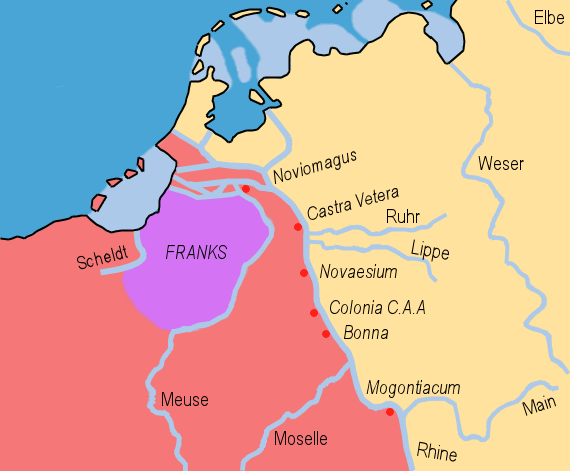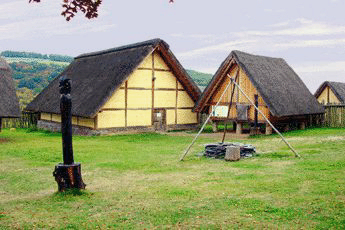|
List Of Wars In The Low Countries Until 1560
This is a list of premodern wars that occurred in the Low Countries until 1560. *For subsequent wars in the north, see List of wars involving the Netherlands (1560–present). *For subsequent wars in the south, see **List of wars in the southern Low Countries (1560–1829) ** List of wars involving Belgium (1830–present) ** List of wars involving Luxembourg (1890–present). List References {{Reflist Low Countries The term Low Countries, also known as the Low Lands ( nl, de Lage Landen, french: les Pays-Bas, lb, déi Niddereg Lännereien) and historically called the Netherlands ( nl, de Nederlanden), Flanders, or Belgica, is a coastal lowland region in N ... Wars Europe-related lists Military history of Europe ... [...More Info...] [...Related Items...] OR: [Wikipedia] [Google] [Baidu] |
Spanish Netherlands
Spanish Netherlands (Spanish: Países Bajos Españoles; Dutch: Spaanse Nederlanden; French: Pays-Bas espagnols; German: Spanische Niederlande.) (historically in Spanish: ''Flandes'', the name "Flanders" was used as a ''pars pro toto'') was the Habsburg Netherlands ruled by the Spanish branch of the Habsburgs from 1556 to 1714. They were a collection of States of the Holy Roman Empire in the Low Countries held in personal union by the Spanish Crown (also called Habsburg Spain). This region comprised most of the modern states of Belgium and Luxembourg, as well as parts of northern France, the southern Netherlands, and western Germany with the capital being Brussels. The Army of Flanders was given the task of defending the territory. The Imperial fiefs of the former Burgundian Netherlands had been inherited by the Austrian House of Habsburg from the extinct House of Valois-Burgundy upon the death of Mary of Burgundy in 1482. The Seventeen Provinces formed the core of the Habsburg N ... [...More Info...] [...Related Items...] OR: [Wikipedia] [Google] [Baidu] |
Frisii
The Frisii were an ancient Germanic tribe living in the low-lying region between the Rhine–Meuse–Scheldt delta and the River Ems, and the presumed or possible ancestors of the modern-day ethnic Dutch. The Frisii lived in the coastal area stretching roughly from present-day Bremen to Bruges, including many of the smaller offshore islands. In the 1st century BC, Romans took control of the Rhine delta but Frisii to the north of the river managed to maintain some level of independence. Some or all of the Frisii may have joined into the Frankish and Saxon peoples in late Roman times, but they would retain a separate identity in Roman eyes until at least 296, when they were forcibly resettled as ''laeti'' (i.e., Roman-era serfs) and thereafter disappear from recorded history. Their tentative existence in the 4th century is confirmed by archaeological discovery of a type of earthenware unique to 4th-century Frisia, called ''terp Tritzum'', showing that an unknown number of F ... [...More Info...] [...Related Items...] OR: [Wikipedia] [Google] [Baidu] |
Tournai
Tournai or Tournay ( ; ; nl, Doornik ; pcd, Tornai; wa, Tornè ; la, Tornacum) is a city and municipality of Wallonia located in the province of Hainaut, Belgium. It lies southwest of Brussels on the river Scheldt. Tournai is part of Eurometropolis Lille–Kortrijk–Tournai, which had 2,155,161 residents in 2008. Tournai is one of the oldest cities in Belgium and has played an important role in the country's cultural history. It was the first capital of the Frankish Empire, with Clovis I being born here. Geography Tournai is located in the Picardy Wallonia and Romance Flanders region of Belgium, at the southern limit of the Flemish plain, in the basin of the River Scheldt (''Escaut'' in French, ''Schelde'' in Dutch). Administratively, the town is part of the Province of Hainaut, itself part of Wallonia. It is also a municipality that is part of the French-speaking Community of Belgium. Tournai has its own arrondissements, both administrative and judicial. Its area of ma ... [...More Info...] [...Related Items...] OR: [Wikipedia] [Google] [Baidu] |
Salian Franks
The Salian Franks, also called the Salians (Latin: ''Salii''; Greek: Σάλιοι, ''Salioi''), were a northwestern subgroup of the early Franks who appear in the historical record in the fourth and fifth centuries. They lived west of the Lower Rhine in what was then the Roman Empire and today the Netherlands and Belgium. The traditional historiography sees the Salians as one of the main divisions of the Franks alongside the Ribuarians. Recent scholarship, however, has often questioned the ethnic significance of both these terms. Etymology Various etymologies are proposed. The ethnonym is unrelated to the name for the dancing priests of Mars, who were also called Salii. In line with theories that the Salians already existed as a tribe outside the Roman Empire, the name may have derived from the name of the IJssel river, formerly called ''Hisloa'' or ''Hisla'', and in ancient times, ''Sala'', which may be the Salians' original residence. Today this area is called Salland. Al ... [...More Info...] [...Related Items...] OR: [Wikipedia] [Google] [Baidu] |
Chlodio
Chlodio (probably died after 450), also Clodio, Clodius, Clodion, Cloio or Chlogio, was a Frankish king who attacked and then apparently ruled Roman-inhabited lands around Cambrai and Tournai, near the modern border of Belgium and France. He is known from very few records. His influence probably reached as far south as the River Somme. He was therefore the first Frankish ruler to become established so deep within the Roman empire, and distant from the border regions where the Franks had already been established for a long time. He was possibly a descendant of the Salian Franks, who Roman sources report to have settled within Texandria in the 4th century. Gregory of Tours reported that in his time people believed that the Merovingian dynasty, who were still ruling, were descended somehow from Chlodio. Name ''Chlodio'' is a short form of Frankish names such as ''*Hlodowig'' ( Clovis) or *''Hlodhari'' (Chlothar), which are derived from the Germanic root *''hlod''- ('famous'). An ... [...More Info...] [...Related Items...] OR: [Wikipedia] [Google] [Baidu] |
Franks
The Franks ( la, Franci or ) were a group of Germanic peoples whose name was first mentioned in 3rd-century Roman sources, and associated with tribes between the Lower Rhine and the Ems River, on the edge of the Roman Empire.H. Schutz: Tools, Weapons and Ornaments: Germanic Material Culture in Pre-Carolingian Central Europe, 400-750. BRILL, 2001, p.42. Later the term was associated with Romanized Germanic dynasties within the collapsing Western Roman Empire, who eventually commanded the whole region between the rivers Loire and Rhine. They imposed power over many other post-Roman kingdoms and Germanic peoples. Beginning with Charlemagne in 800, Frankish rulers were given recognition by the Catholic Church as successors to the old rulers of the Western Roman Empire. Although the Frankish name does not appear until the 3rd century, at least some of the original Frankish tribes had long been known to the Romans under their own names, both as allies providing soldiers, and as e ... [...More Info...] [...Related Items...] OR: [Wikipedia] [Google] [Baidu] |
Carausius
Marcus Aurelius Mausaeus Carausius (died 293) was a military commander of the Roman Empire in the 3rd century. He was a Menapian from Belgic Gaul, who usurped power in 286, during the Carausian Revolt, declaring himself emperor in Britain and northern Gaul (Imperium Britanniarum). He did this only 13 years after the Gallic Empire of the Batavian Postumus was ended in 273. He held power for seven years, fashioning the name "Emperor of the North" for himself, before being assassinated by his finance minister Allectus. History Carausius was of humble origin, a Menapian who distinguished himself during Maximian's campaign against the Bagaudae rebels in northern Gaul in 286. This success, and his former occupation as a pilot, led to his appointment to command the '' Classis Britannica'', a fleet based in the English Channel, with the responsibility of eliminating Frankish and Saxon pirates who had been raiding the coasts of Armorica and Belgica. He was suspected of allowing pirates ... [...More Info...] [...Related Items...] OR: [Wikipedia] [Google] [Baidu] |
Antoninianus Carausius Leg4-RIC 0069v
The ''antoninianus'' or pre-reform radiate, was a coin used during the Roman Empire thought to have been valued at 2 denarii. It was initially silver, but was slowly debased to bronze with a minimal silver content. The coin was introduced by Caracalla in early 215 AD. It was silver, similar to the denarius except that it was slightly larger and featured the emperor wearing a radiate crown, indicating it was a double denomination. Antoniniani depicting women (usually the emperor's wife) featured the bust resting upon a crescent moon. Even at its introduction, the silver content of the antoninianus was only equal to 1.5 denarii. This created inflation: people rapidly hoarded the denarii (Gresham's law), while both buyers and sellers recognized the new coin had a lower intrinsic value and elevated their prices to compensate. Silver bullion supplies began running short because the Roman Empire was no longer conquering new territory, the Iberian silver mines had been e ... [...More Info...] [...Related Items...] OR: [Wikipedia] [Google] [Baidu] |
Treveri
The Trēverī (Gaulish: *''Trēueroi'') were a Celtic tribe of the Belgae group who inhabited the lower valley of the Moselle from around 150 BCE, if not earlier, until their displacement by the Franks. Their domain lay within the southern fringes of the ''Silva Arduenna'' ( Ardennes Forest), a part of the vast Silva Carbonaria, in what are now Luxembourg, southeastern Belgium and western Germany; its centre was the city of Trier (''Augusta Treverorum''), to which the Treveri give their name. Celtic in language, according to Tacitus they claimed Germanic descent.Tacitus writes, "The Treveri and Nervii are even eager in their claims of a German origin, thinking that the glory of this descent distinguishes them from the uniform level of Gallic effeminacy." ''Germania'' XXVIII. They possibly contained both Gallic and Germanic influences. Although early adopters of Roman material culture, the Treveri had a chequered relationship with Roman power. Their leader Indutiomarus led them ... [...More Info...] [...Related Items...] OR: [Wikipedia] [Google] [Baidu] |
Lingones
The Lingones (Gaulish: 'the jumpers') were a Gallic tribe of the Iron Age and Roman periods. They dwelled in the region surrounding the present-day city of Langres, between the provinces of Gallia Lugdunensis and Gallia Belgica. Name Attestations They are mentioned as ''Língōnes'' (Λίγγωνες) by Polybius (2nd c. BC), ''Lingones'' by Caesar (mid-1st c. BC), Pliny (1st c. AD) and Tacitus (early 2nd c. AD), ''Díngones'' (Δίγγονες) by Strabo (early 1st c. AD), and as ''Lóngōnes'' (Λόγγωνες) by Ptolemy (2nd c. AD). Etymology The Gaulish ethnonym ''Lingones'' literally means 'the jumpers'. It derives from the stem ''ling-'' ('to jump'), itself from the Proto-Celtic verbal base ''*leng-'' ('to jump'; cf. Old Irish ''lingid'' 'he jumps'), extended by the suffix -''on-es''. The name could be interpreted as 'good at jumping (on horseback)', or else as 'the dancers'. The city of Langres, attested ca. 400 AD as ''civitas Lingonum'', is named after the Ga ... [...More Info...] [...Related Items...] OR: [Wikipedia] [Google] [Baidu] |
Batavi (Germanic Tribe)
The Batavi were an ancient Germanic tribe that lived around the modern Dutch Rhine delta in the area that the Romans called Batavia, from the second half of the first century BC to the third century AD. The name is also applied to several military units employed by the Romans that were originally raised among the Batavi. The tribal name, probably a derivation from ''batawjō'' ("good island", from Germanic ''bat-'' "good, excellent," which is also in the English "better," and ''awjō'' "island, land near water"), refers to the region's fertility, today known as the ''fruitbasket of the Netherlands'' (the Betuwe). Finds of wooden tablets show that at least some were literate . Location The Batavi themselves are not mentioned by Julius Caesar in his commentary ''Commentarii de Bello Gallico'', although he is often thought to have founded his dynasty's Germanic bodyguard, which was at least in later generations dominated by Batavi. But he did mention the "Batavian island" in the ... [...More Info...] [...Related Items...] OR: [Wikipedia] [Google] [Baidu] |





